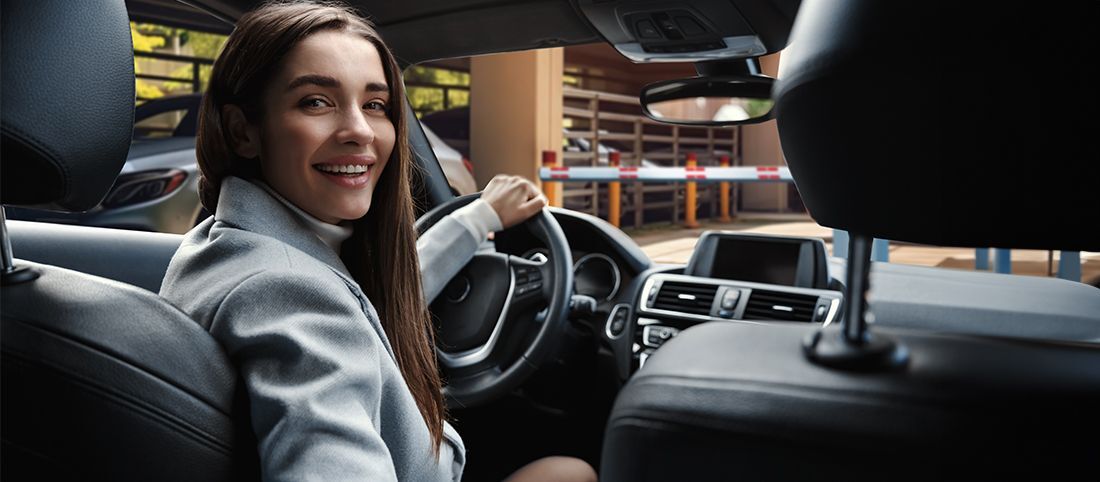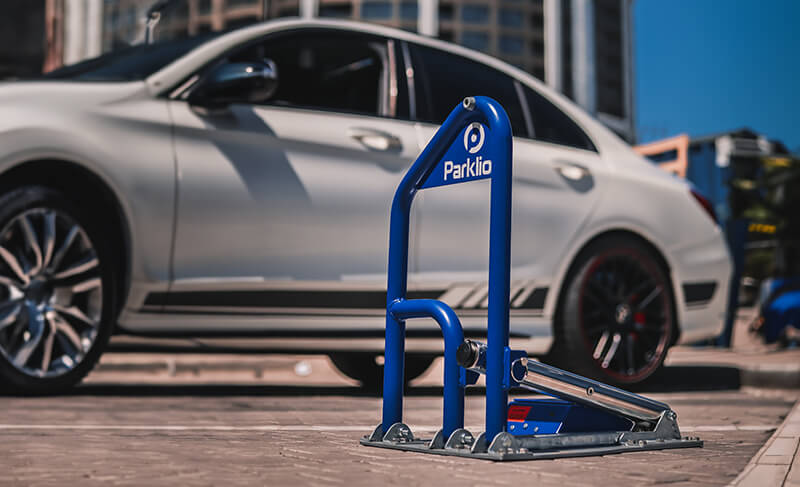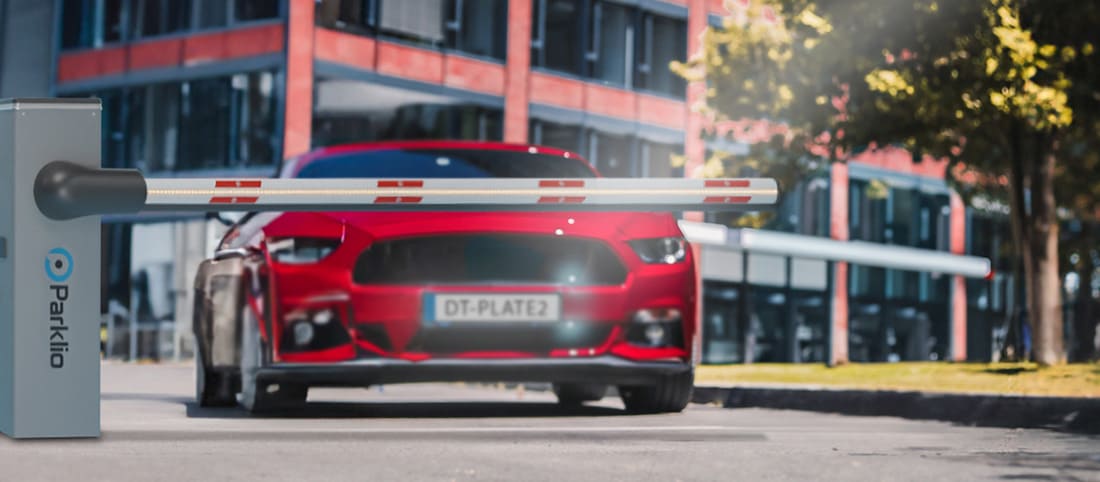How to Choose the Right Parking Barrier?

From conventional manual barriers to smart automated systems, the choices can be overwhelming. As the right parking barrier can make all the difference, several significant considerations should be taken into account when deciding on parking protection. The following sections will guide you through the process of choosing a parking barrier that aligns perfectly with your objectives.
Table of contents:
Types of Parking Barriers
Parking barriers have long been used to manage vehicle access and increase security at various establishments. As technology advances, the difference between manual and automatic parking barriers becomes increasingly significant. Each type has its merits, responding to different needs and preferences.
Manual Parking Barriers: An Established Practice
Manual parking barriers, which can commonly be seen in small-scale parking areas, private driveways, and locations with low traffic flow, represent a simple and cost-effective approach to restricting site access. Here are some of the most significant features of manual parking barriers:
- They are simple to use and maintain: While manual barriers are easy to operate because they typically consist of a simple mechanism, they depend on manual lifting or lowering. However, due to their limited electronic components, they demand minimal maintenance.
- They need human intervention: Because manual parking barriers lack automated sensors or systems to detect and respond to vehicles in real time, they require human intervention to regulate vehicle access and maintain their proper function.
- They are reliable: Their simple mechanical design makes them less vulnerable to malfunctions and resistant to power outages.
- They are cost-effective: Because they have simpler mechanical components and require less maintenance, manual barriers are quite affordable.
Automatic Parking Barriers: A Technological Breakthrough
Automatic parking barriers are commonly associated with parking lots. However, they are the preferred choice in diverse settings due to their adaptability to a wide range of requirements. It is important to mention that most of these barriers can also operate on solar power independently, without relying on the electricity supply. With the progression of technology, automated parking barriers are employing sensors, cameras, and mechanized systems to effectively manage access, protecting parking facilities in bustling urban zones or preventing unauthorized access from private parking spots and properties. Here's why automatic parking barriers are becoming more and more important:
- They are highly efficient: Automatic parking barriers are considered highly efficient due to their rapid and precise operation, reduced labor costs, and frictionless access control. These barriers not only enhance the overall user experience but also streamline the operational aspects of parking management, making them an indispensable asset in modern parking solutions.
- They increase safety and security: By utilizing advanced sensors, surveillance cameras, and license plate recognition technology, these barriers have considerably improved safety and security by efficiently preventing unauthorized entrance and ensuring regulated access. Moreover, upon detecting a vehicle's departure, these barriers will automatically close.
- They can be controlled remotely: Automatic parking barriers are typically controlled remotely through a combination of electronic access control systems and wireless communication technology. Authorized persons can use a mobile app or remote control to send commands to the barrier, allowing them to raise or lower it as needed. Advanced systems also integrate with Automatic number plate recognition (ANPR)or RFID technology for seamless, automated access control.
- They provide data insights: Automatic barriers can be equipped with sensors and cameras to collect data on vehicle flow, busiest times, and usage trends. This helps you make informed decisions on the optimization and efficient distribution of resources.
When it comes to choosing between manual and automatic barriers, your choice should depend on your specific needs and requirements. The following section deals with the factors you should consider when choosing.
Also read: How To Make Your Parking Lot Smart & Modern

Choosing the Right Parking Barrier
By carefully considering the following factors, you'll be able to make a well-rounded decision and choose a barrier that best suits your demands.
Define your requirements
Start by understanding your requirements. How will you be using the barrier? Are you in search of a solution to regulate traffic at a parking lot, or perhaps a barrier that will be used near your home? Consider the number of vehicles, the frequency of usage, the type of vehicles that will be accessing the area, and the level of control you want to maintain. Areas with higher levels of traffic require faster operation to ensure efficient flow.
Determine how you want to control access
If your location requires stricter access control and precise data on entry and exit, then barriers operated manually by people are not the best choice. License plate recognition systems, smartphone apps, proximity sensors, and RFID cards are some of the most popular access methods. Select a barrier that is compatible with the access control method you prefer.
Evaluate the level of security you need
Manual parking barriers have generally been shown to provide less security than automatic barriers. They can prevent unauthorized entry but may not provide the same level of control. If security is an important factor for you, look for features such as safety sensors, anti-tamper locks, and the ability to integrate with security cameras and monitoring systems.
Consider the installation and maintenance requirements
Make sure that the selected barrier is simple to install within your parking area and that there exists adequate space for its optimal functionality. If you already have other security or management systems, make sure the parking barrier can integrate seamlessly with them.
Set a budget
Parking barriers are available in various price ranges. Set a budget that matches your needs with the possibilities available. Keep in mind not only the initial cost but also continuous maintenance and potential upgrades.
Choose your parking barrier wisely
Whether manual or automatic, there are different types of parking barriers available, including:
- Single parking spot barriers are usually installed in the middle of parking places to reserve the space for specific users or purposes.
- Gate barriers are physical barriers used to control access to certain areas, such as parking lots, residential or business complexes, and more. Boom barriers, sliding gates, and swing gates are some of the most popular types of gate barriers.
- Chain barriers safeguard any type of parking area that has multiple parking spaces or wide entry points.
- Bollards are vertical posts that can be raised or lowered to control access and prevent unauthorized vehicles from accessing private, sensitive, or restricted zones.
- Rising kerbs are favored for their ability to offer robust security against vehicle intrusion while maintaining a minimal visual footprint, which makes them a suitable choice for a range of applications.
- Height Restrictor Barriers are physical obstacles that prevent vehicles taller than a specified height from entering certain areas. Height restrictor barriers are critical in preventing oversized vehicles from entering areas where their height could cause collisions, structural damage, or other harm.

Wrapping Up: Making an Informed Decision
Choosing the right parking barrier is a crucial decision that can have a significant impact on the efficiency and safety of your parking area. Although manual parking barriers offer several benefits, it's essential to recognize that they may not be the best choice for all situations. The choice between manual and automatic parking barriers is influenced by a variety of factors, but in general, automatic barriers offer superior efficiency, convenience, and security benefits, while manual barriers, although less advanced, can still provide basic security when on a tight budget.


